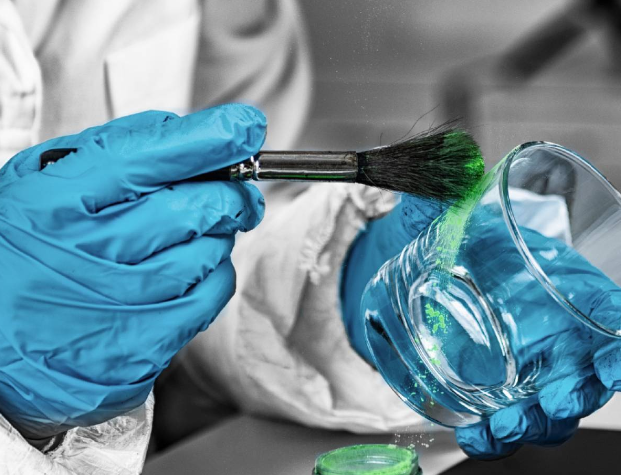In the realm of forensic science, a forensic signature expert plays a crucial role in verifying the authenticity of signatures and handwriting. Whether in criminal investigations, civil litigation, or even personal disputes, these specialists utilize their expertise to assess documents and provide critical insights that can make or break a case. This article explores the responsibilities of a forensic signature expert, the techniques they employ, and their significance in various legal contexts.
What is a Forensic Signature Expert?
A forensic signature expert is a trained professional who specializes in the analysis of signatures and handwriting to determine their authenticity. They examine various factors, including the style, slant, and pressure of the writing, to assess whether a signature is genuine or forged. This expertise is vital in cases involving fraudulent contracts, wills, and checks, where the integrity of the signature is often contested.
The Process of Signature Verification
The process a forensic signature expert follows typically includes several key steps:
Document Examination: The expert begins by closely examining the document in question. They look for any signs of tampering, alterations, or discrepancies in the signature.
Comparative Analysis: The expert compares the signature in question with known samples of the individual’s handwriting. This includes looking at various characteristics, such as letter formation, spacing, and overall consistency.
Scientific Analysis: Advanced tools and techniques may be employed, including digital imaging and computer analysis. These methods enhance the visibility of certain features and can provide a more detailed comparison.
Expert Testimony: In legal proceedings, the forensic signature expert may be called to testify about their findings. Their testimony can significantly impact the outcome of a case, providing juries and judges with a professional opinion on the authenticity of a signature.
The Importance of Forensic Signature Experts in Legal Matters
The role of a forensic signature expert is invaluable in various legal contexts. Here are a few scenarios where their expertise is crucial:
Fraud Investigations
In cases of suspected fraud, such as forgery or identity theft, a forensic signature expert can determine whether the signature in question was made by the individual it purports to represent. This can help law enforcement agencies build stronger cases against suspects.
Estate and Will Disputes
Disputes over wills often hinge on the validity of signatures. A forensic signature expert can analyze whether the signatures on a will match those of the deceased, helping to settle conflicts among heirs and beneficiaries.
Commercial Litigation
Businesses often deal with contracts that require signatures. In instances where a company suspects forgery, a forensic signature expert can provide crucial insights, potentially saving the business from significant financial losses.
Family Law Cases
In family law disputes, such as custody cases or divorce settlements, a forensic signature expert may be needed to verify documents that could influence legal decisions. The integrity of signed agreements can be essential to resolving these sensitive matters.
The Connection Between Fingerprints Evidence and Signature Analysis
While a forensic signature expert focuses on handwriting and signatures, they often collaborate with other forensic professionals, such as fingerprint analysts. Both specialties fall under the umbrella of forensic science and play significant roles in investigations. For instance, in cases where the authenticity of a signature is disputed, fingerprints evidence may also be examined to establish a link between the suspect and the document in question.
Advanced Techniques Used by Forensic Signature Experts
Forensic signature experts are continually evolving their techniques to keep pace with advancements in technology. Here are some of the tools and methods they utilize:
Digital Imaging Software: This software enhances the visibility of signatures, allowing for a more precise analysis of handwriting characteristics.
Microscopy: Experts may use microscopes to examine the minute details of signatures, such as ink layering and pressure points, which can indicate forgery.
Statistical Analysis: Some forensic experts apply statistical methods to quantify similarities and differences between handwriting samples, lending scientific rigor to their findings.
Choosing the Right Forensic Signature Expert
When selecting a forensic signature expert, it’s essential to consider their credentials and experience. Here are some factors to keep in mind:
Qualifications: Look for professionals with formal training in forensic science, handwriting analysis, or a related field.
Experience: An expert with a proven track record of successful analyses and courtroom testimonies can provide greater assurance of their expertise.
Reputation: Seek out reviews or testimonials from previous clients to gauge the expert’s reliability and professionalism.
Conclusion
In an increasingly complex world where document fraud is prevalent, the role of a forensic signature expert is more important than ever. Their ability to authenticate signatures not only aids in the resolution of legal disputes but also helps maintain the integrity of personal and commercial transactions. By employing advanced techniques and collaborating with other forensic specialists, these experts provide invaluable insights that can significantly influence the outcome of a case. Whether in fraud investigations, estate disputes, or commercial litigation, the expertise of a forensic signature expert is essential in ensuring justice is served.





Comments